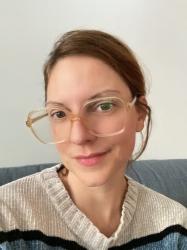You probably use tons of expressions, idioms, and slang phrases every day that don’t make literal sense. If you ever thought long and hard about why you say something a certain way, you could probably make a guess. However, some English expressions are so unusual that it is impossible to guess where on earth it originated from — unless you know the history. In case you didn’t know, historical events, legends, important figures, religion, and even advertisements form the basis of many expressions used today. Here are the origins of some of the most interesting idioms!
Bite the Bullet
Meaning: To accept something difficult or unpleasant.
Origin: In the olden days, when doctors were short on anesthesia or time during a battle, they would ask the patient to bite down on a bullet to distract from the pain. The first recorded use of the phrase was in 1891 in The Light that Failed.
Break the Ice
Meaning: To break off a conflict or commence a friendship.
Origin: Back when road transportation was not developed, ships would be the only transportation and means of trade. At times, the ships would get stuck during the winter because of ice formation. The receiving country would send small ships to “break the ice” to clear a way for the trade ships. This gesture showed affiliation and under-standing between two territories.
Butter Someone Up
Meaning: To praise or flatter someone excessively.
Origin: This was a customary religious act in ancient India. The devout would throw butter balls at the statues of their gods to seek favor and forgiveness.
Mad as a Hatter
Meaning: To be completely crazy.
Origin: No, you didn’t already know this one, because it didn’t originate from Lewis Caroll’s Alice in Wonderland. Its origins date from the 17th and 18th centuries — well before Lewis Caroll’s book was published. In 17th century France, poisoning occurred among hat makers who used mercury for the hat felt. The “Mad Hatter Disease” was marked by shyness, irritability, and tremors that would make the person appear “mad.”
VIVIANE FAVER
Journalist
vfaver@gmail.com



